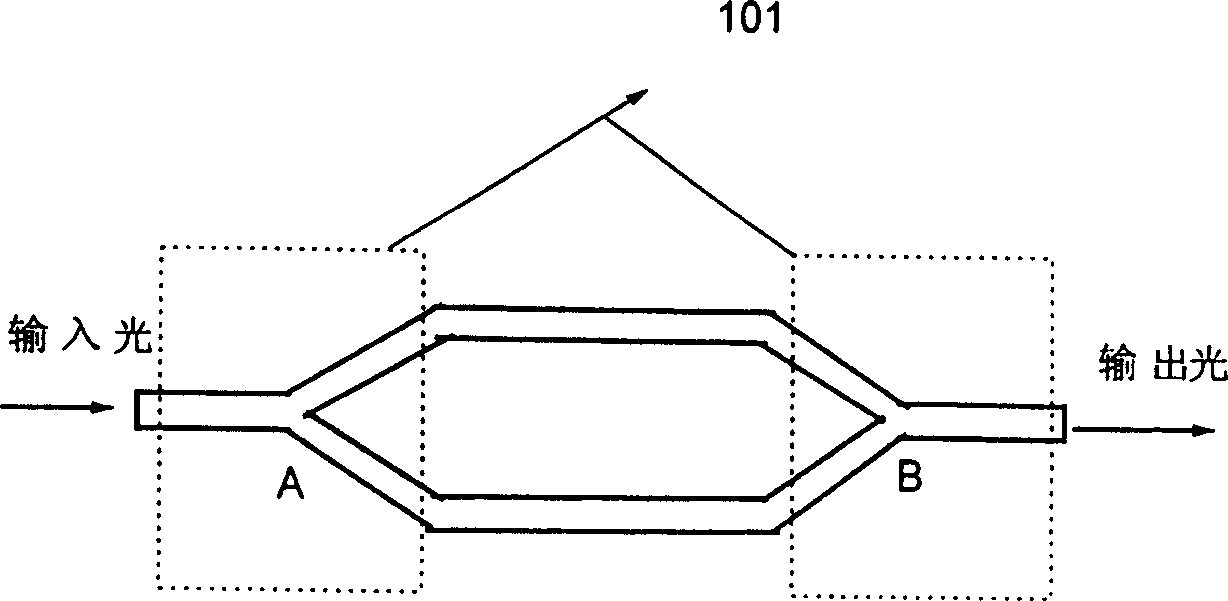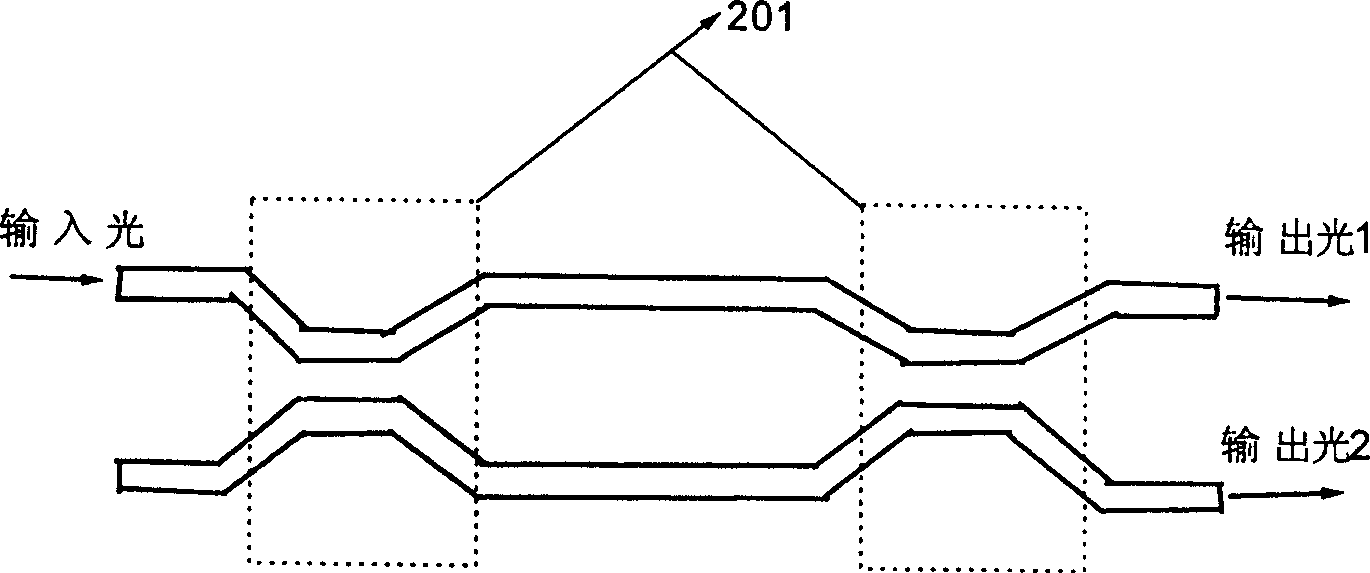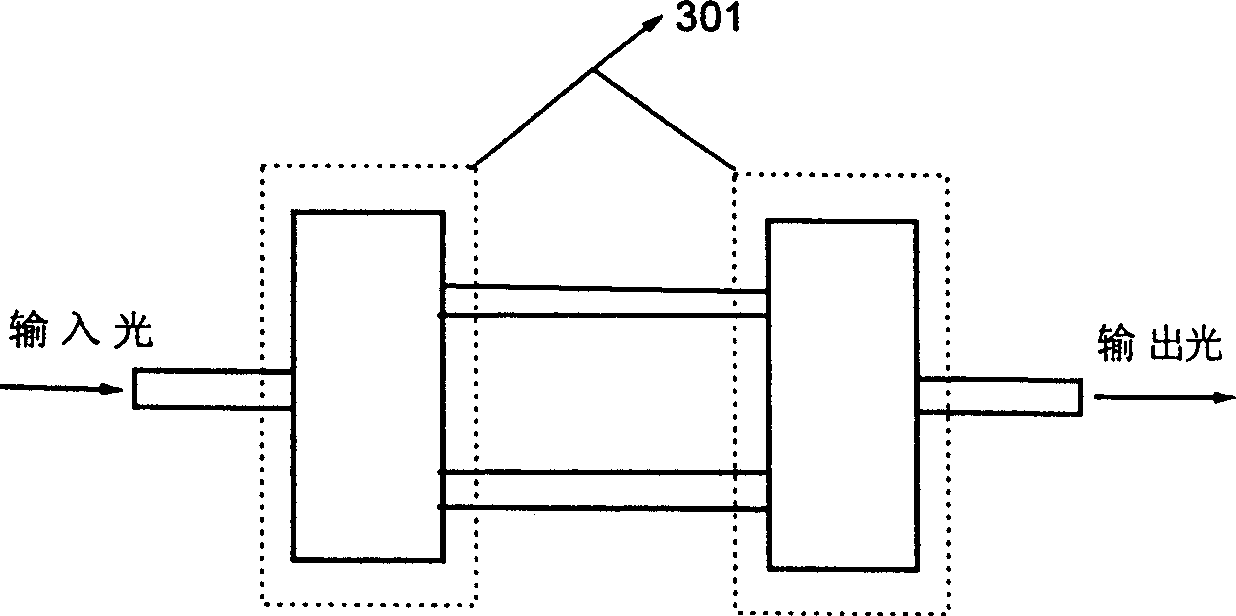Optical attenuator module with automatic regulation function
An automatic adjustment and attenuator technology, applied in optics, nonlinear optics, instruments, etc., can solve the problems of difficult optical signal power level, stable consistency, poor stability, etc.
- Summary
- Abstract
- Description
- Claims
- Application Information
AI Technical Summary
Problems solved by technology
Method used
Image
Examples
Embodiment Construction
[0029] There are three main structures used to realize the optical attenuator: Y-branch optical attenuator (such as figure 1 shown), direct coupler optical attenuators (such as figure 2 shown), multimode interference optical attenuator (such as image 3 shown). No matter what kind of structure is adopted, its basic principle is the principle of Mache-Zender interferometer, which will be introduced first below.
[0030] The Gaussian beam coming out of the single-mode fiber is coupled into the device through the input waveguide. At node A, it is divided into two beams with equal intensity and enters two symmetrical single-mode waveguides respectively. Since the structures on both sides are symmetrical, the intensity of the two beams is equal, and the phase Also the same, the "Y"-shaped branch structure near the node A (referred to as the Y branch structure 101) mainly completes the function of dividing a beam of light into two beams in equal proportions, and the electric fiel...
PUM
| Property | Measurement | Unit |
|---|---|---|
| refractive index | aaaaa | aaaaa |
Abstract
Description
Claims
Application Information
 Login to View More
Login to View More - R&D
- Intellectual Property
- Life Sciences
- Materials
- Tech Scout
- Unparalleled Data Quality
- Higher Quality Content
- 60% Fewer Hallucinations
Browse by: Latest US Patents, China's latest patents, Technical Efficacy Thesaurus, Application Domain, Technology Topic, Popular Technical Reports.
© 2025 PatSnap. All rights reserved.Legal|Privacy policy|Modern Slavery Act Transparency Statement|Sitemap|About US| Contact US: help@patsnap.com



